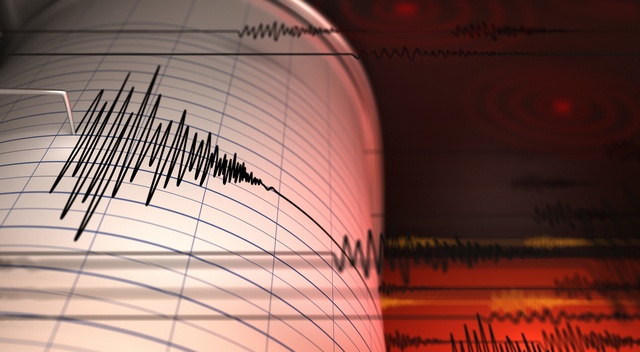
Most of us believe we are prepared for the everyday kind of disaster at work: We carry extra cash, safety pins, and a cell phone. We keep a granola bar (or five) in our desk. In Seattle, we never, ever, let the coffee pot run out. But while all these things are good (especially the coffee pot), most of us never think about what we would do if a true disaster struck during the time we are at work -- the place/s where we spend more waking hours than anywhere else.
Let's take the case of an earthquake, since that's our most likely Puget Sound area disaster, and the basic things to prepare for if one occurs during our workday apply to many other scenarios as well.
Experts tell us that following a big quake -- the kind that could easily happen here -- it's likely we will not be able to do a lot of things we take for granted.
- We may not be able to get home. If bridges or tunnels have collapsed, and roads have buckled and become impassable, travel distances that normally take a short time could suddenly take more than a day to cover.
- We may not be able to contact family or friends. Between a surge in usage and destroyed or damaged cell towers, it's nearly certain that cell phones won't work well -- or at all -- after a major earthquake. Landline phones may not be available either, depending on the type of quake.
- We may not be able to get help. Living in and near cities, we are used to the idea that if we call for police protection or medical help, trained and equipped professionals will arrive within minutes. But in a large scale emergency, help may not arrive for several days.
So, what to do? As usual, the best thing is to remember the Boy Scout motto and Be Prepared.
- Carry an emergency kit in your car or a bag under your desk. If you park in a parking garage, you could discover your car pancaked under tons of concrete. There are a lot of lists available for these, and they can be cheap and easy to make. In general, think about what you might need if you found it necessary to walk from work to home -- flat shoes if you wear heels, a rain poncho, a flashlight, an AM radio for news, granola bars.... here are a couple of resources for you:
> Basic Disaster Supplies Kit
- Try to keep at least 1/2 tank of gas in your car all the time, so that if the roads are usable and you can drive, you won't be stuck looking for fuel. Gas stations may be out of gas, or unable to pump the gas they have if their electric pumps are not working.
- Make a plan with your family/housemates/loved ones. If you have kids, how will they get home from school? All schools have emergency plans; you can call to find out yours. Where will you go if your home is uninhabitable? Take a look at the website for your city, and the city where you work, and see what emergency plans are in place. What out-of-area number will you call (if you can call) to leave your status and current location? This is important since often long distance calls will go through while local ones will not.
- Make a plan with your work colleagues, if you work together at one location. Do some of you drive four-wheel drive cars that could navigate rough roads -- or off-road -- better than others? Can you store your emergency gear in a company closet (which might give you more room than under your desk)? Are any of your colleagues licensed for amateur (ham) radio? If they are, do they keep a radio in their car, and are they willing and able to relay messages to out-of-state contacts for your group?
None of these things take a lot of time or money. And none of them can be done as effectively once an emergency has begun. Most tomorrows are just like today - but if you plan, you'll be able to make the best choices for that one tomorrow that is not.
You may be concerned about the future of your business. We have a large group of CFOs who can help you prepare. Contact us here to let us know of your interest.
About the Author
 Charlotte Morin is the business manager for CFO Selections, handling accounting, and IT. She brings a unique combination of skills in accounting, writing, organization, process development, and technology to the CFO Selections team.
Charlotte Morin is the business manager for CFO Selections, handling accounting, and IT. She brings a unique combination of skills in accounting, writing, organization, process development, and technology to the CFO Selections team.
She joined the company in 2008, following six years as co-owner and controller of an e-commerce company, eleven years as a systems analyst, and three years working to build an internet company from the ground up.





